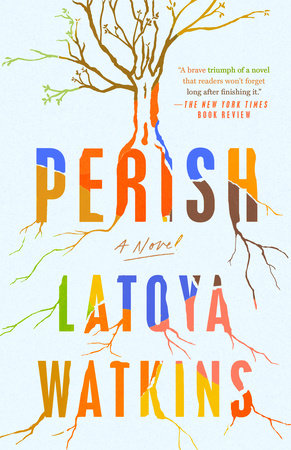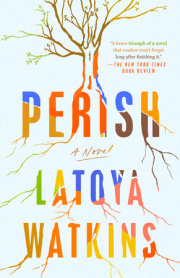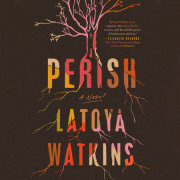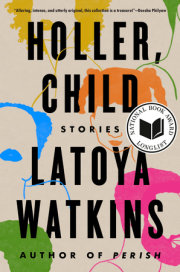The Flats, 1955
Helen Jean sat on the hole inside the musky outhouse and pushed her palms flat against the bench, willing her body to do the work she needed it to. She waited for the heavy knot to begin to throb and her bowels to break. For the familiar pain to erupt from the core of her stomach. She had followed all of Ernestine's orders, just like the first time. Nothing to eat all day but toast. Nothing to drink. Not even water. But all she felt was nervous.
She tried to remember exactly how it had happened before. Last time, she had been early on when she went to her cousin for assistance. This time, a tight knot had already formed on the inside of her belly, a knot that she was beginning to notice on the outside. A knot her father and three brothers had likely noticed, too. The one they all chose to ignore because it told each of them too much about who they were.
Ernestine had warned her, It might be too late, Helen Jean. Can't give you too much cause you be dead, too. Got to be just enough to ruin the seed but not you.
Helen Jean had prayed to the God of Moses that it would work. She reminded him that she had never gone to the Mr. Fairs Pleasure Gardens with the other girls and boys her age. She reminded him that she'd never sat on any of those benches, letting boys wrap their thick lips around her neck or touch her in the places that were meant to be secret. That she had been a good girl. Obedient to her parents, her father after her mother was dead. She promised God that if he spared her the hell of carrying the thing growing inside her, she would leave Jerusalem, Texas, and find a place where she could fully serve him. A place where no one knew her.
She inhaled and clenched her teeth and then let all the air out of her body in one powerful push. She couldn't hold the grunt, almost a scream, that came out with the push.
The last time she'd taken Ernestine's turpentine, her stomach had cramped up while she was serving her father and brothers turkey necks and beans. It happened just after she popped open her father's can of Hamm's beer. It was unlike the cramps from her monthly and felt more like the time she had drank too much castor oil to relieve herself of a bad case of constipation. She'd wrapped both arms around her stomach and almost toppled over right there. Without moving his head, her father allowed his eyes to shift to her from peering down at the spoon of beans hovering in front of his mouth.
She'd excused herself to the outhouse, which, unlike the one in her current situation, was a two-holer that her father had wired for electricity. The outhouse was the thing her father hated most about their shotgun house. He always complained about indoor plumbing and how it would never reach the blacks in the Flats because nothing was expanding for them, being built for them.
On that night, the last time it happened, Helen Jean sat down on the hole just when she thought her bowels would explode, and, to her surprise, she felt a slimy mass pass through her womanhood instead.
This time, however, nothing was happening. No horrible stomachache. No slimy mass. Just dry pushing, gas, and grunts.
"Did it come out?" she heard Ernestine's squeaky voice ask from outside the door.
She didn't answer. She turned her mind to Jessie B. It was setting in that she'd have to accept his marriage proposal. That she'd have to say yes to the nowhere man. She wanted to cry, but she just sat there breathing hard and staring in the direction of her feet. It didn't matter that she couldn't see them through the darkness. Just like the seed growing inside her, she knew her feet were there. If she had been her usual self, she would have been concerned about snakes being curled up in the corner of her aunt's outdated restroom. But she wasn't her usual self tonight.
She exhaled again and reached down to pull up her panties. Her chest began to tighten and her breathing became rapid. For a moment, she sat there with one hand down at her ankles, gently tugging at her panties, and the other over her heart, as if she would say the Pledge of Allegiance. And then the breathing turned to panting and then loud gasping for air.
There was light knocking on the door, and she could hear Ernestine calling out to her, almost crying but still whispering, begging for a response. But Helen Jean couldn't speak. She was struggling to catch her breath, to breathe, a thing that had always been easy. Dear God of Moses, she thought. What I done now? You gone kill me for trying to right this wrong? She asked him to take the monster growing inside her. The abomination it would be.
And suddenly, her ears felt stuffed, blocked, except for the sounds inside her. She opened her mouth wide and tried to force out a yawn. Everything outside of her felt distant, quiet, and she heard a faint whisper growing from inside her ear, like a mouth inside her head trying to crawl its way out. A life to repay the last one, it said. You can't keep killing them. Bear it or perish yourself.
Her eyes widened and she knew. She knew that God was not with her this time. The sounds around her returned. She could hear herself gasping for air and she could hear her cousin calling her name from outside of the outhouse. She fell to the floor of the outhouse and rolled to her back, raising her knees into a pyramid. The moon slithered in through the splintered wooden slats that were the roof of her aunt's outhouse. The tin had blown away years before, during a tornado, and the poor family had simply replaced it with wood from around their land. She hadn't noticed the glow when her eyes had been on the darkness around her feet.
It had been still all night, but as she lay on the floor, a strong, long wind seemed to come through and rattle every plank that was holding the outhouse together. The wind coupled with Ernestine's shaking the outhouse door made it feel like the end of days was happening outside.
Helen Jean kept her eyes on the moon's glow. It was beautiful. Like what she imagined the God of Moses looked like. And then, she made out a face through the glow. It was a narrow heart centered by a long, slender nose that was slightly humped in the center, like her own. For a moment, she thought she was seeing her own haint. She'd heard the old folks say you see yourself most clearly right before death. But the softness around the eyes allowed her to recognize her mother's face, and Helen Jean's breaths began to come so quickly she thought her heart would explode. This was it. She wouldn't be allowed to see herself clearly in this life. Not even in her own haint. The God of Moses had sent her mother to carry her to the Promised Land.
She wanted to tell her mother something first. She wanted to tell her that things had been hard. She wanted to ask her why she didn't fight for her mind. To stay herself. To stay with her children. She wanted to ask her what possessed her to leave them on that cold night. Why she had been so close to the lake when she couldn't swim. If she had meant to drown. To be found days later with her lungs filled with water, with her eyes wide open and void of life and her lips curled into a smile. If she had meant for them to suffer as they had. Helen Jean wanted to tell her mother about the thing inside her and how much she hated that it was there. She wanted to tell her that she wouldn't allow it to break her. She was stronger than that. That she was stronger than her.
On the floor of that nasty outhouse, with the scent of feces and urine closer to her nostrils than she wanted them to be, unable to catch her breath, she thought she would die, but she turned her head from the moon's glow, from her dead mother's face, and she made promises to God anyway. She wouldn't kill the monster inside her. She promised to never try it again. She'd give birth to any seed to ever grow inside her womb. She would stay with the things that passed through her. She would protect them. All she asked for was life. She promised she'd give it if hers was spared.
And just as quickly as the attack had come upon her, it ceased. She stayed on her back until her breathing leveled and then she responded to Ernestine's voice. "I'm all right, Stine. I'm all right."
After a few minutes, she rose up from the floor of the outhouse, pulled up her panties, and opened the door. Ernestine's wide, stout body blocked the exit. One of her hips sat higher than the other, so despite her wide girth, she appeared fragile, leaning against the wooden stick she used for a cane. She was only twenty-six, ten years Helen Jean's senior, but due to the slight handicap, she carried herself like she was older than that. Her tight eyes became two straight lines on her face as she attempted to take all of Helen Jean in before she finally asked, "What happened in there? It come out?"
Helen Jean shook her head and stepped down from the outhouse. "Nawh, still there," she said, and she could hear a low grittiness in her own voice.
"Well," Ernestine began. "Maybe you was too far gone for turpentine. Momma in the house. Can't do it now, but if you come back tomorrow when she go to Ms. Dorothy Ann's, I can get it out with a wrench for you. Got Reesa's out like that last week."
Helen shook her head again and walked past her cousin. "Nawh. That's all right. I'm gone go see Jessie B. in the morning."
Ernestine grabbed her arm, and Helen Jean stopped walking. The moonlight was shining bright enough for her to see her cousin's toffee skin perfectly. Her hair was rolled into pin curls and Helen Jean knew bobby pins were holding the perfect circles in place.
"You sure, Helen Jean? I mean, I think Jessie B. a catch. Shoot, wish I could go find him and tell him yes for myself, but you . . ."
Helen's lips began to quiver and she felt her knees going weak, so she stomped her foot and said the first thing that came to her mind. "Shit," she said. "I'm sure. This what I got to do. This how it got to be."
And she told herself that this was how it had to be. Jessie B. was a silent man with no family and he just seemed to appear from nowhere two years before. His face was hard-set and mean like he didn't want to be bothered, so no one dared ask him where he was from or about his family. There were all types of stories about him. Most of them centered on some type of rage or murder, but Helen Jean simply thought the way he carried himself garnered respect. He was always dressed nicely and had a quiet, stoic quality about himself. She had seen with her own eyes how white and black men tipped their hats at him in public. They respected him. Feared him, even. As far as they were concerned, he came from nowhere in the world.
The people of Jerusalem didn't understand that. Most of them had come from families that trickled in from the smaller surrounding towns at the turn of the century. Family histories were shared things. Known things. Even those silent shames.
Jessie B. was mysterious in a place where most folks didn't have a clue about how to keep themselves to themselves. So that mysteriousness was something the people envied more than feared, but most folks didn't know the difference.
Helen Jean found that he was easy enough to talk to, but he had taken the few words she'd ever spoken to him and turned them into a marriage proposal. A month before the night at the outhouse, when she first discovered she was with child, she sat in a booth at the Hut Cafe on 33rd, nursing a Coca-Cola and shuffling the Hut's famous fries around her plate. She didn't even see Jessie B. approach, but when her puffy eyes looked up to find him standing over her, it seemed that he'd been standing there holding his hat to his chest for a while.
"Evening," he said, nodding toward the seat across from her.
She replied, "Hello," and turned her face back to her fries without responding to his request to take a seat.
"Little gal," he said, sliding into the seat anyway. "I was over yonder having a bite and looked over here and saw the saddest thing in the world. Beautiful young lady, having dinner on her own. Face looking like she done lost her very best friend."
She looked at him and took in his dark skin and beady eyes. His hair was cut low, but she could still see that he was balding at the top by the way his cowlicks reached toward the back of his head. She had seen him from a distance many times, and pegged him for someone close to her father's age. She'd never seen him this close up, so she hadn't noticed that he was missing her father's frown lines, crow's feet, and other hard marks and lines that time and real evil create on faces. No. He wasn't that old. Close up, he was in his late twenties, maybe even his early thirties, but he wasn't her father's age. He wasn't in his fifties. He was younger than that. He wasn't her father.
"I don't have no friends, sir. All I got is me," she said, before dropping her eyes to her lap. And she wasn't sure why she even said that much to him, but she felt like she could've gone on if it hadn't been for the knot forming in her throat. The knot threatening to make her cry.
He didn't offer comfort. He didn't reach across the table and pat the backs of her hands. In fact, his silence was so thick that she looked back up at him to make sure he was still there. The hardness that folks were afraid of, that she hadn't noticed earlier, was in his jawline, in which she saw a slight twitch. She thought of her father. Of his twitching jawline, and pulled her hands from the table into her lap.
Copyright © 2022 by LaToya Watkins. All rights reserved. No part of this excerpt may be reproduced or reprinted without permission in writing from the publisher.







